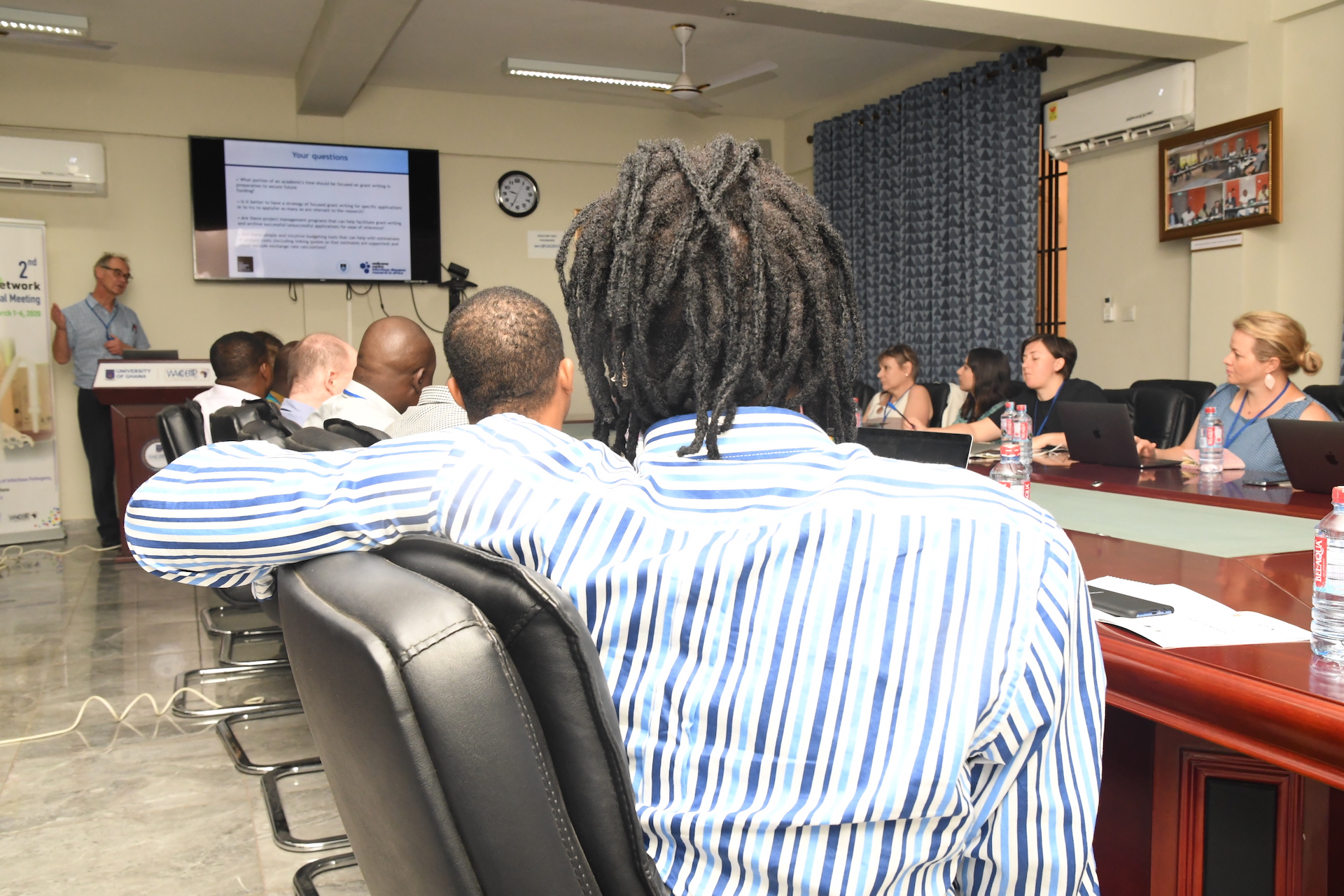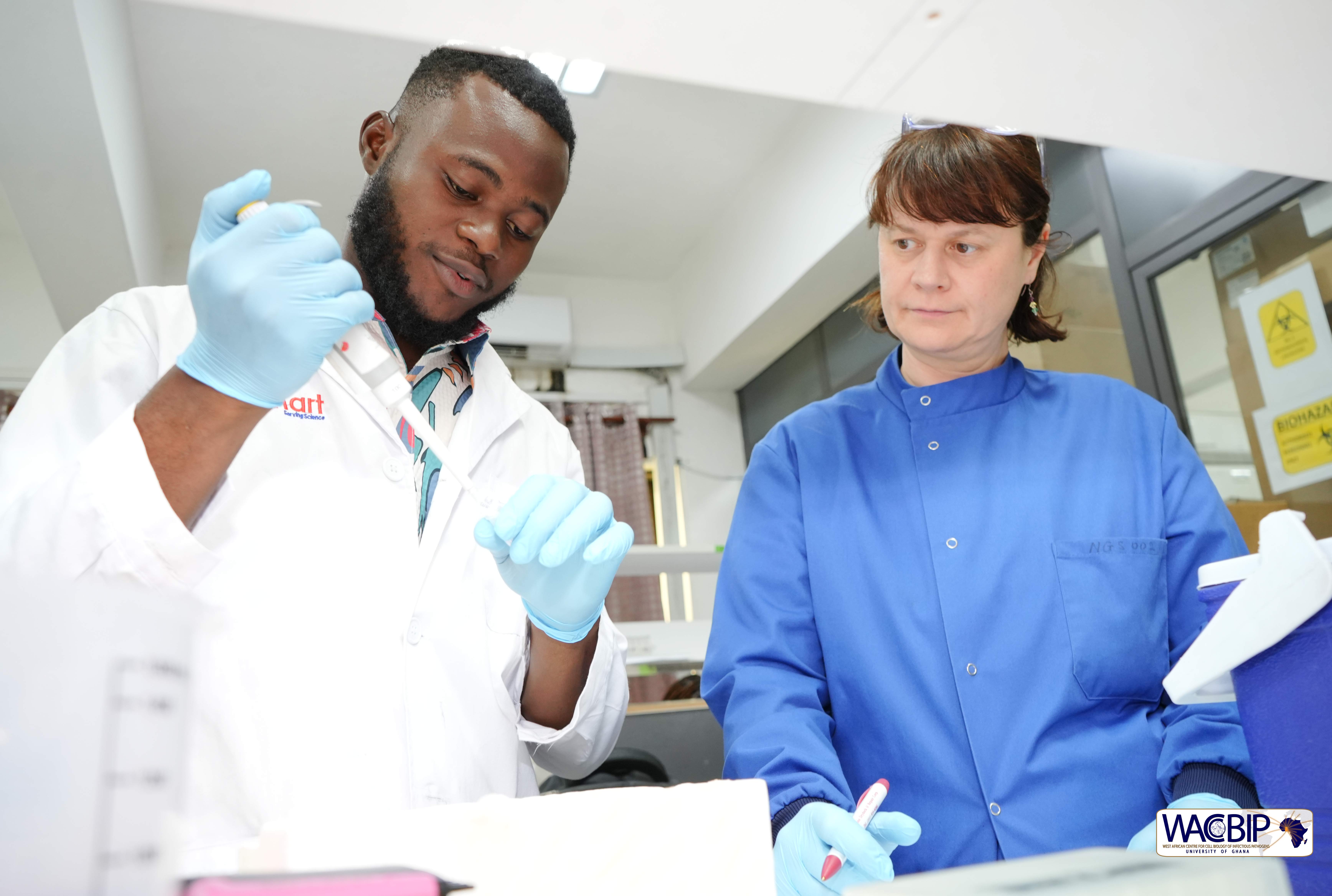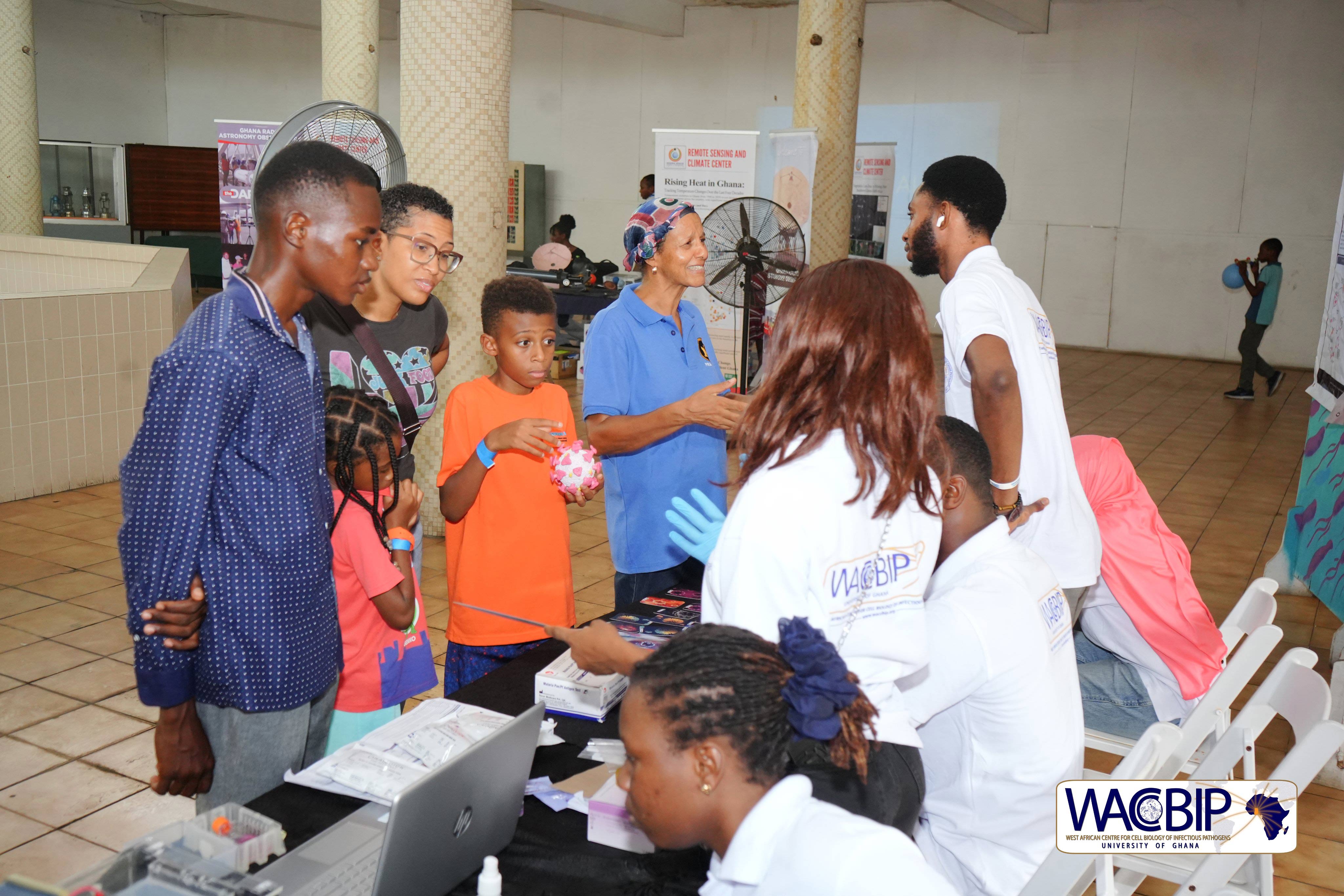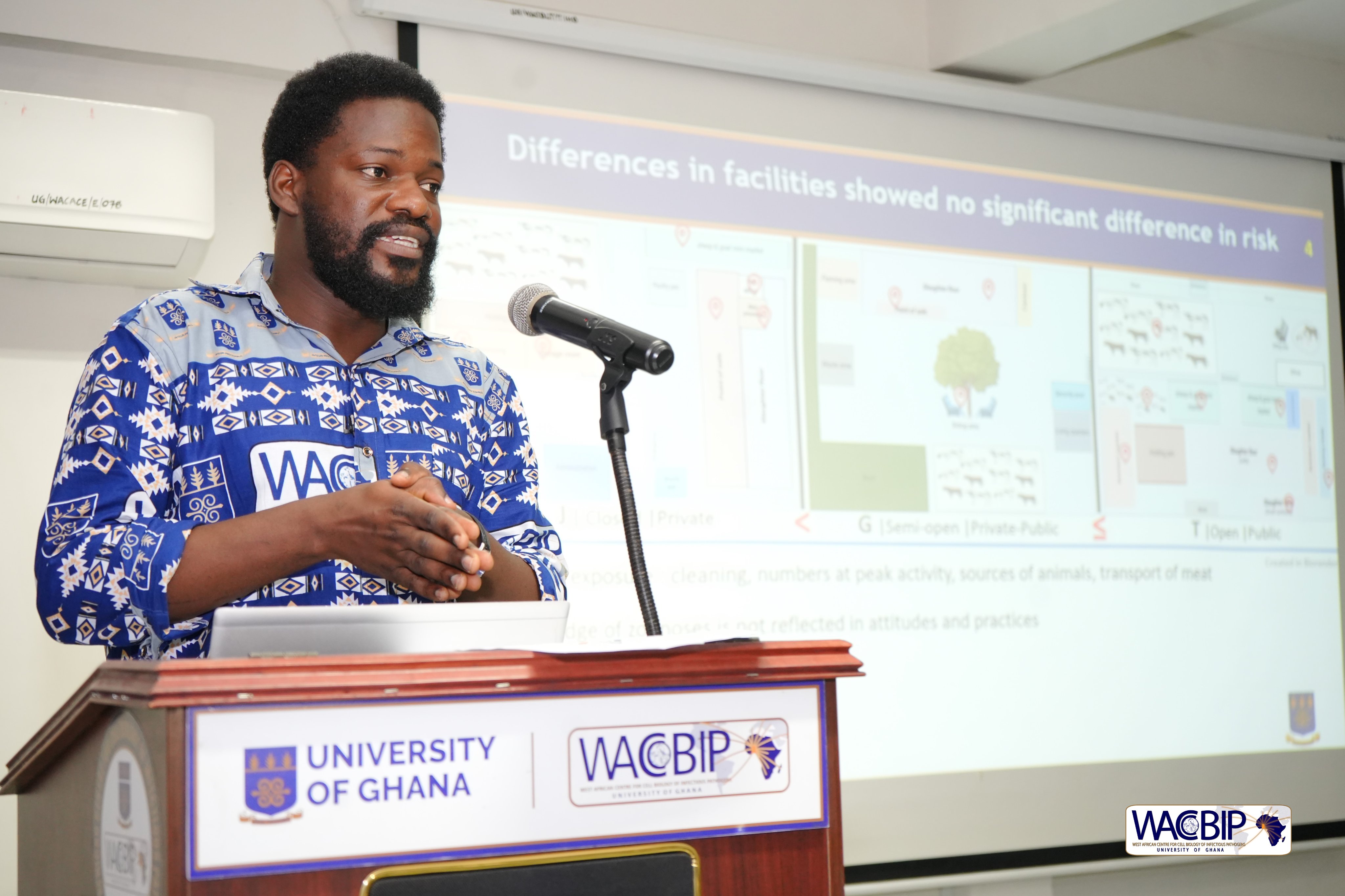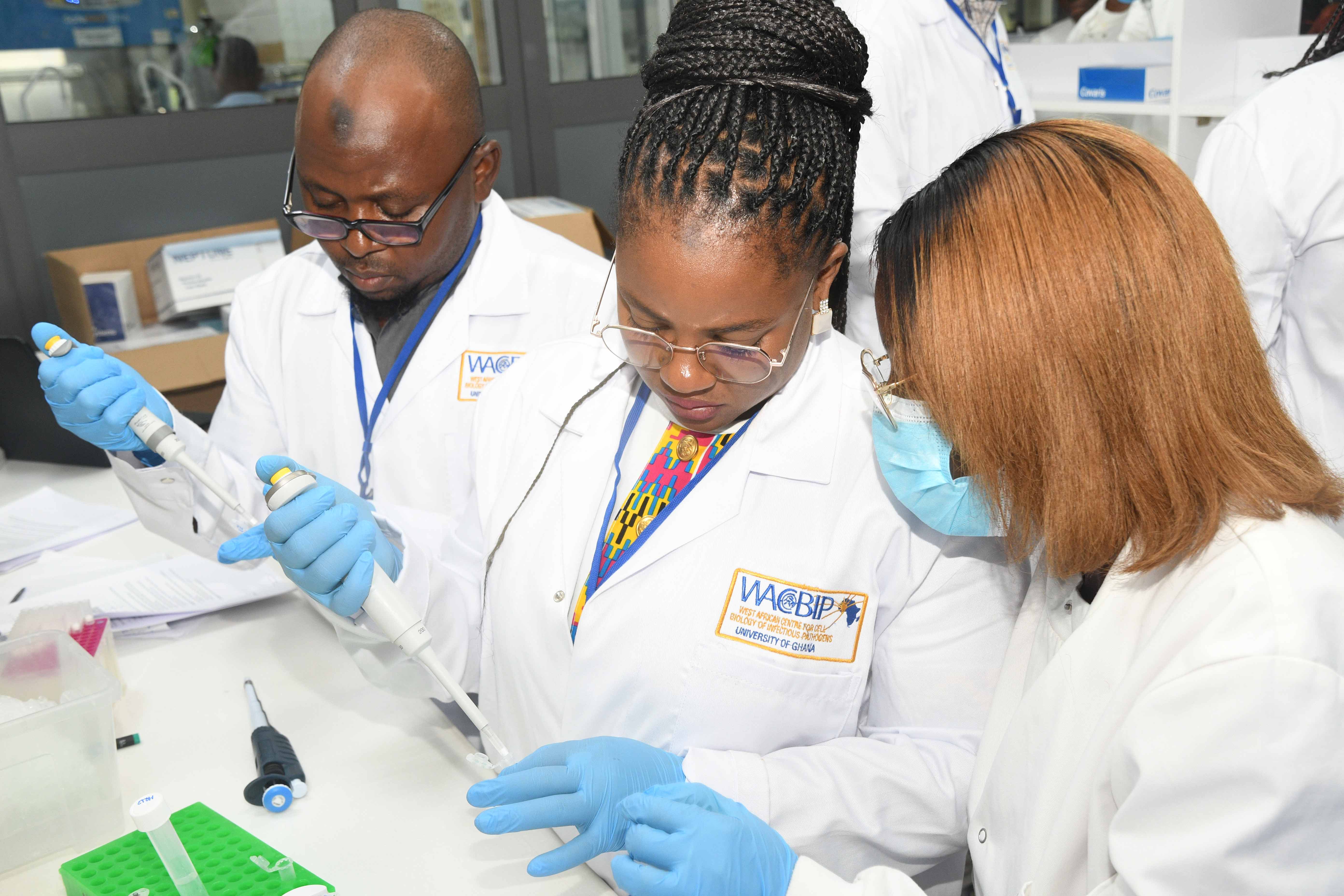The West African Centre for Cell Biology of Infectious Pathogens (WACCBIP) from March 1- 6 hosted the second Annual Meeting of the Crick African Network (CAN), a partnership between the Francis Crick Institute and a select group of African-based research organisations that seeks to build capacity in African institutions to conduct research into infectious diseases.
Stakeholders from the Crick, WACCBIP, the University of Cape Town, Stellenbosch University, London School of Hygiene and Tropical Medicine, Institut Pasteur Dakar, African Population and Health Research Centre, the Wellcome Trust, the European Bioinformatics Institute, Université Cheikh Anta Diop, and the Noguchi Memorial Institute for Medical Research met to take stock of the progress made on the projects funded under the initiative.
Professor Gordon Awandare, Director of WACCBIP, who opened the meeting, stressed that the Centre's mandate is fully aligned with the goals of the Crick African Network, as it seeks to train young African scientists and build the continent's future scientific knowledge base through high quality research and training. He said that the Centre was proud to be one of the partner institutions under the initiative and was keen to continue in partnership with the Francis Crick Institute to build capacity in biomedical research.
“The whole concept [of WACCBIP] was to create not only a physical environment that favours high quality science, but also an intellectual and social environment that favours the training of people and promotes interaction among the young scientists on the continent,” Prof. Awandare said. “These goals align with what the Crick African Network is trying to do. So, we're very proud CAN partners. We are extremely enthusiastic about this and we are already looking at ways to sustain this type of partnership with The Crick Institute.”

Prof. Awandare interacting with a group of CAN fellows.[/caption]
Professor Robert J. Wilkinson, Director of the Network, spoke about the initiative, describing the evolution of the network from its conception to implementation. He provided details on the progress of the main feature of the initiative, the Career Accelerator Awards. He said that the initial grant was simpler as there was no real presence or image in Africa, but after holding workshops purposed partially to establish partnerships and to give a boost to research grant preparation and facets of research methodology, the actual needs and complexities became more evident, ultimately leading to the award of 18 high-value fellowships to African scientists within 18 months.
“This programme is exactly on track. We've got 17 plus one fellow in place,” Prof. Wilkinson said “The other thing that we conceived, although it wasn't our objective, was the idea that the Crick African Network fellowships were merely a stepping stone to greater things. The success of the Fellows is central to the programme. We want to be able to look beyond the Network and make it a requirement for people in the Fellowship to apply for grants to sustain their activities beyond the potentially limited time frame of the Network.”
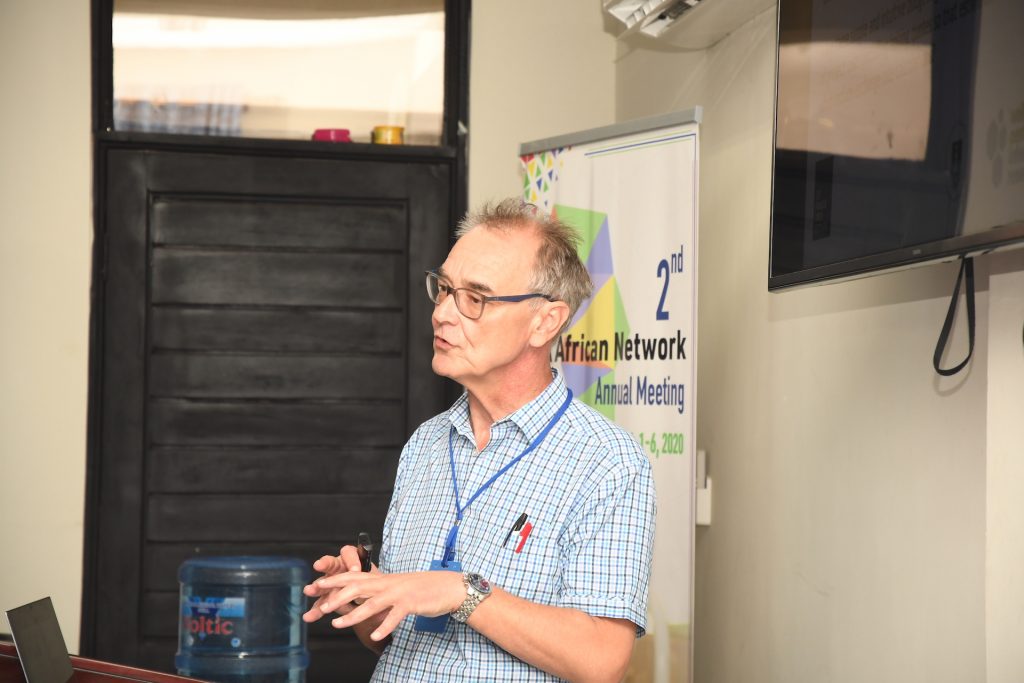
Prof. Robert Wilkinson speaking to participants.[/caption]
Focusing on grant writing and related professional skills development, a two-day pre-meeting workshop provided a platform for CAN faculty and key stakeholders to interact with CAN fellows, providing guidance on research proposal development, how to develop successful grant applications, and other important career development skills including networking and presentation skills. Fellows also presented their research work for feedback from faculty, refining essential aspects of their CAN projects.
Updates on each of the CAN projects were presented during the main meeting, which also featured talks from supervisors and mentors from all the CAN partners, as well as representatives from various key funding organisations. Scientific presentations covered infectious diseases such as malaria, tuberculosis, meningitis, buruli ulcer, and HIV, an account of antimalarial drug resistance in Ghana, information on Gambia's high-tech platform for laboratory research, advanced sequencing STP and sequencing technologies, and how to use chemical tools to understand glycobiology. There were also varied talks from distinguished research leaders and senior scientists that presented real life experiences and lessons directed at preparing early-career researchers for the journey to becoming research leaders. Some WACCBIP PhD and MPhil fellows also presented their research work in a poster session on the final day of the meeting.

Dr Yaw Bediako, a CAN Fellow, presenting an update on his research work.[/caption]
Closing out the meeting, Prof. Wilkinson thanked WACCBIP for hosting the meeting. He commended the Centre's PhD and MPhil students for their excellent poster presentations, and praised the CAN Advisory Board for going beyond their duty in their commitment to the Network. He thanked The Crick for sending their team in to help and expressed gratitude to the UK Global Challenges Research Fund (GCRF) and the Wellcome Trust for their support. He was impressed by how well-informed, respectful and intelligent the interactions had been, and said that each stakeholder made a substantial contribution to the overall success of the meeting.
Prof. Awandare, in his closing remarks, thanked the invited speakers and the WACCBIP administrative staff for their diligence in handling the organisation and smooth running of the meeting. He also thanked WACCBIP colleagues who made time to join the meeting and thanked visiting participants for making the journey from the various countries to be part of the meeting.
“For everybody who travelled and came here, as I said during the opening, we are incredibly honoured that you took the time to come and spend these days with us, despite the threat of corona virus and everything else. We are very grateful for the time spent here,” Prof. Awandare said. “As I always say, once you come here you become an ambassador for us, you've come to see what we are trying to do here, you see the environment we are trying to create and the level of enthusiasm of the students and everyone around here. You get what we are trying to do here and now you are our ambassadors.”
Please view the AGM programme here.

